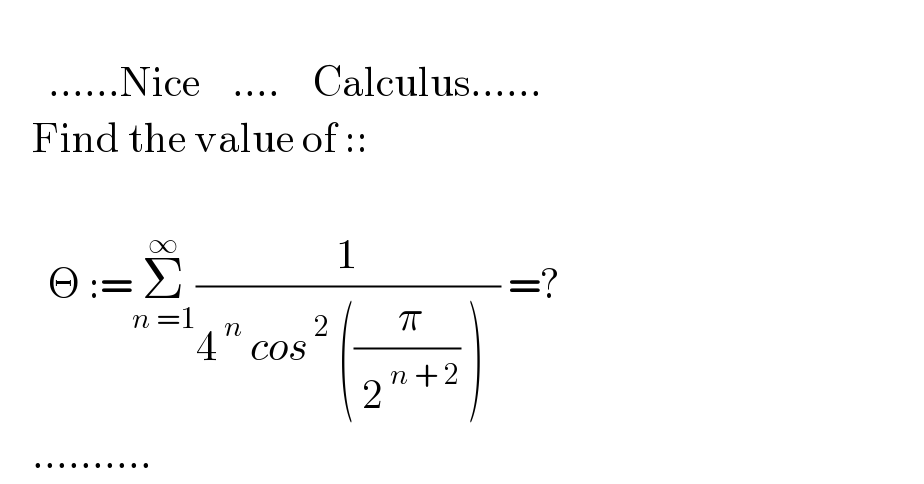Question Number 144311 by mnjuly1970 last updated on 24/Jun/21

Commented by Kamel last updated on 24/Jun/21

Commented by mnjuly1970 last updated on 24/Jun/21

Answered by ArielVyny last updated on 24/Jun/21
![Θ=Σ_(n=1) ^∞ (1/4^n )[1+tg^2 ((π/2^(n+2) ))]=Σ_(n=1) ^∞ ((1/4))^n +Σ_(n=1) ^∞ ((tg^2 ((π/2^(n+2) )))/4^n ) Θ=(4/3)+Σ_(n=1) ^∞ ((1/4))^n tg^2 ((π/(4×2^n ))) posons ((1/2))^n =t Θ=(4/3)+Σ_(t=(1/2)) ^0 t^2 tg^2 ((π/4)t)=(4/3)−Σ_(t=0) ^(1/2) t^2 tg^2 ((π/4)t) Θ=(4/3)−(1/2)Σ_(t=0) ^1 t^2 tg^2 ((π/4)t) Θ=(4/3)−(1/2) Θ=(5/6)](https://www.tinkutara.com/question/Q144316.png)
Commented by mathmax by abdo last updated on 25/Jun/21

Answered by abdullahoudou last updated on 24/Jun/21

Commented by ArielVyny last updated on 24/Jun/21

